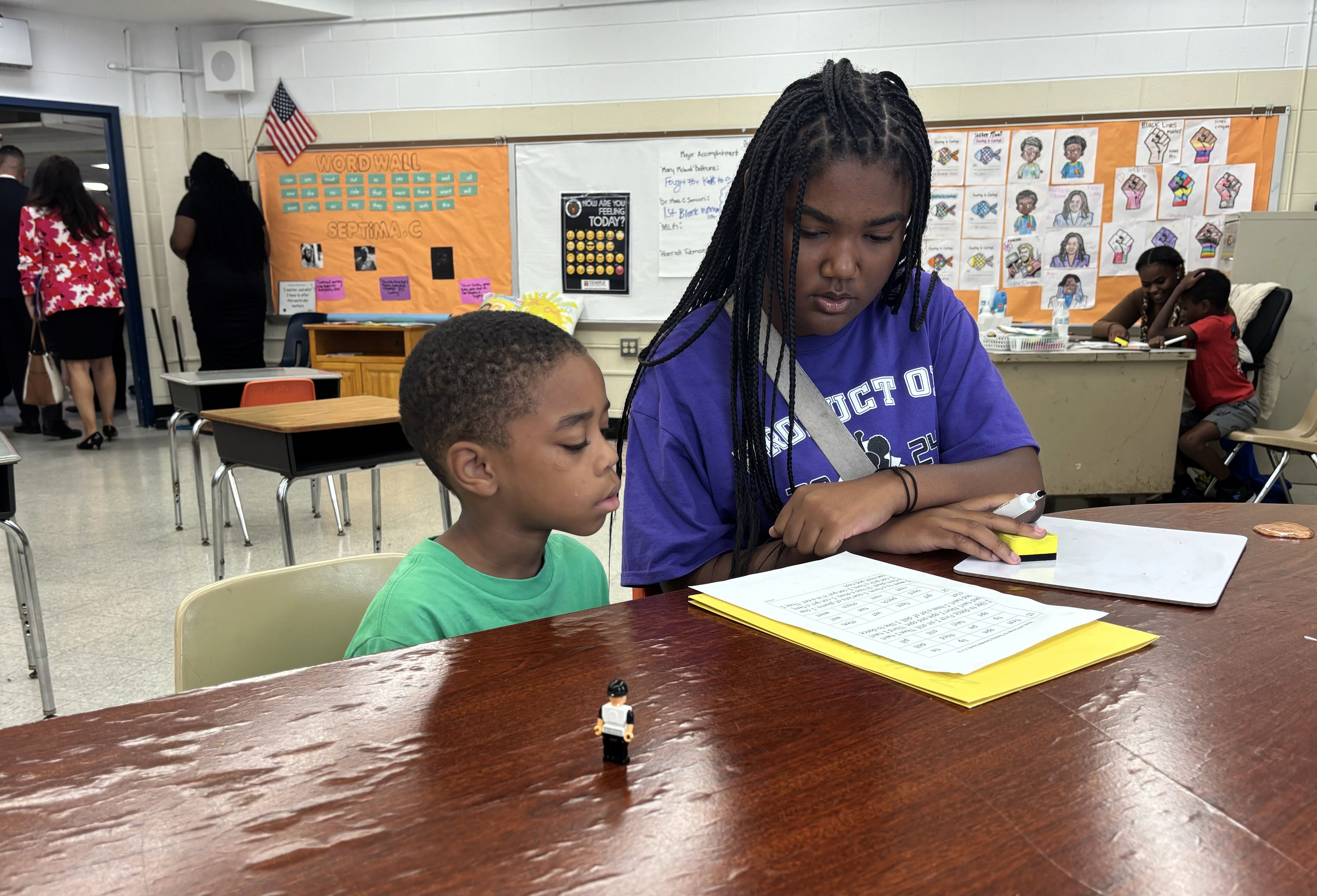Report on the Withholding of Federal Education Funds in Georgia and its Conflict with Sustainable Development Goals
Executive Summary
An administrative review by the federal Office of Management and Budget (OMB) has resulted in the suspension of over $200 million in education grants allocated to the state of Georgia. This action, occurring just weeks before the start of the new academic year, places numerous educational programs in jeopardy. The withholding of these funds directly contravenes key United Nations Sustainable Development Goals (SDGs), particularly SDG 4 (Quality Education), SDG 10 (Reduced Inequalities), and SDG 16 (Peace, Justice and Strong Institutions), by threatening access to inclusive education for vulnerable student populations and undermining institutional stability.
Analysis of Funding Suspension and its Impact on Sustainable Development Goals (SDGs)
Direct Contravention of SDG 4 (Quality Education)
The suspension of funds presents a significant obstacle to achieving SDG 4, which aims to ensure inclusive and equitable quality education and promote lifelong learning opportunities for all. The impacts include:
- Threat to Equitable Access: The funding freeze jeopardizes the educational stability for 1.7 million students in Georgia, undermining the core principle of Target 4.1, which calls for free, equitable, and quality primary and secondary education.
- Harm to Vulnerable Groups: Programs specifically designed for migrant students and English learners are directly impacted. This action is in direct opposition to Target 4.5, which seeks to ensure equal access to all levels of education for vulnerable populations.
- Disruption of Learning Environments: The potential loss of 21st Century Community Learning Centers, which provide safe and effective extended learning opportunities, conflicts with the objective of Target 4.a to build and upgrade inclusive and effective learning environments.
Exacerbation of Inequalities in Conflict with SDG 10 (Reduced Inequalities)
The decision disproportionately affects marginalized communities, thereby exacerbating existing disparities and working against the aims of SDG 10.
- Undermining Equal Opportunity: By targeting funds for migrant education and English language acquisition, the review directly obstructs progress toward Target 10.3, which is to ensure equal opportunity and reduce inequalities of outcome.
- Hindering Social Inclusion: Withholding resources essential for the education of vulnerable students impedes their future social and economic inclusion, a central tenet of Target 10.2.
Implications for SDG 16 (Peace, Justice and Strong Institutions)
The nature of the administrative action raises concerns regarding institutional integrity, a key component of SDG 16.
- Lack of Institutional Transparency: The OMB’s review of previously approved funds, without providing specific justification related to Georgia, challenges the principles of accountable and transparent institutions as outlined in Target 16.6.
- Erosion of Inter-Governmental Trust: The sudden reversal of approved funding undermines the procedural stability and trust between federal and state governmental bodies responsible for delivering essential public services like education.
Details of the Funding Review
Federal Justification and Scope
- The Office of Management and Budget (OMB) has placed over $200 million in education grants for Georgia under review, despite prior approval in March.
- The stated purpose of the review is to determine if state programs are advancing what federal officials have termed a “radical left-wing agenda.”
- The OMB cited alleged misuse of funds in other states but did not provide a specific response or justification concerning the situation in Georgia.
Affected Educational Programs
The grants under review are critical for supporting at-risk and vulnerable student populations. Programs impacted include:
- Federal grants for migrant education
- Funding for English learners
- 21st Century Community Learning Centers, which provide after-school and extended learning programs
State-Level Response and Proposed Actions
Calls for Governmental Intervention
In response to the funding shortfall, state education leaders have proposed several courses of action:
- Georgia Federation of Teachers: President Verdalia Turner has formally requested that Governor Brian Kemp convene a special legislative session to address the budget deficit with state funds.
- Georgia Association of Educators: President Lisa Morgan has urged the Governor to use his political influence to advocate for the release of the federal funds, citing his platform as an “education governor.”
- State School Superintendent: Richard Woods has publicly urged the federal government to release the allocated funds to avoid disruption to the school year.
Official Position of the Governor’s Office
The Governor’s Office has stated that there are currently no plans to call a special legislative session to address the matter.
SDGs Addressed in the Article
SDG 4: Quality Education
- The article’s central theme is the withholding of over $200 million in education grants for Georgia. This directly impacts the provision of quality education, as these funds are designated for specific programs aimed at improving educational access and opportunities. The article states that programs for “migrant education, English learners and 21st Century Community Learning Centers” are affected, all of which are crucial for ensuring inclusive and equitable quality education.
SDG 10: Reduced Inequalities
- The grants are specifically targeted at vulnerable student populations, including migrants and English learners. The article mentions that funds for “migrant education” and “English learners” are being withheld. By jeopardizing these programs, the action threatens to widen the educational gap and increase inequalities for these groups, directly contradicting the goal of reducing inequalities.
SDG 16: Peace, Justice and Strong Institutions
- The article highlights a conflict between federal and state bodies over approved funding. The Office of Management and Budget (OMB) is withholding funds that it had previously approved, creating a crisis for Georgia’s education system. The lack of a specific response from the OMB regarding Georgia (“the agency did not respond”) points to a lack of transparency and accountability in institutions. The call for a “special session” by the Georgia Federation of Teachers is an appeal for responsive institutional action to resolve the issue.
Specific Targets Identified
Targets under SDG 4: Quality Education
- Target 4.1: By 2030, ensure that all girls and boys complete free, equitable and quality primary and secondary education. The article notes that the funding issue puts school districts “in limbo” and affects the “1.7 million students in Georgia,” threatening the stability and quality of their education.
- Target 4.5: By 2030, eliminate gender disparities in education and ensure equal access to all levels of education and vocational training for the vulnerable, including persons with disabilities, indigenous peoples and children in vulnerable situations. This is directly relevant as the withheld grants are for programs supporting “migrant education” and “English learners,” who are considered children in vulnerable situations.
- Target 4.a: Build and upgrade education facilities that are child, disability and gender sensitive and provide safe, non-violent, inclusive and effective learning environments for all. The funding for “21st Century Community Learning Centers” is intended to provide “extended learning opportunities outside regular school hours,” which contributes to creating effective and inclusive learning environments.
Targets under SDG 10: Reduced Inequalities
- Target 10.2: By 2030, empower and promote the social, economic and political inclusion of all, irrespective of age, sex, disability, race, ethnicity, origin, religion or economic or other status. The educational programs for migrants and English learners are designed to foster their inclusion in society. Withholding funds for these programs directly undermines this target.
- Target 10.3: Ensure equal opportunity and reduce inequalities of outcome… by eliminating discriminatory… policies and practices. The act of withholding funds based on a review of a “radical left-wing agenda” could be interpreted as a policy that creates unequal outcomes for the students who depend on the affected programs.
Targets under SDG 16: Peace, Justice and Strong Institutions
- Target 16.6: Develop effective, accountable and transparent institutions at all levels. The article demonstrates a potential failure of this target, as the OMB, a federal institution, is withholding approved funds and “did not respond” when asked for specifics about Georgia, showing a lack of transparency and accountability.
Indicators for Measuring Progress
Indicators for SDG 4
- Financial Indicator: The article explicitly mentions “$200 million worth of education grants” being withheld. This amount serves as a direct quantitative indicator of the financial resources being denied to education programs.
- Population Indicator: The mention of “1.7 million students in Georgia” provides a scale of the total student population potentially impacted by the funding shortfall, serving as an indicator of the scope of the issue.
- Programmatic Indicator: The existence of specific programs such as “migrant education,” “English learners,” and “21st Century Community Learning Centers” implies that there are metrics to track the number of students served by these programs. The disruption to these programs can be measured by the reduction in services or the number of students affected.
Indicators for SDG 10
- Vulnerable Group Indicator: The article identifies specific vulnerable populations: students in “migrant education” and “English learners.” The number of students enrolled in these programs would be a key indicator for measuring efforts to ensure equal opportunity.
Indicators for SDG 16
- Institutional Accountability Indicator: The article provides qualitative evidence of a lack of institutional accountability. The fact that the “OMB had approved the funds in March” but later placed them “under review” without a clear, public justification for Georgia is an indicator of inconsistent and non-transparent institutional processes.
Summary of SDGs, Targets, and Indicators
| SDGs | Targets | Indicators |
|---|---|---|
| SDG 4: Quality Education |
|
|
| SDG 10: Reduced Inequalities |
|
|
| SDG 16: Peace, Justice and Strong Institutions |
|
|
Source: atlantanewsfirst.com







